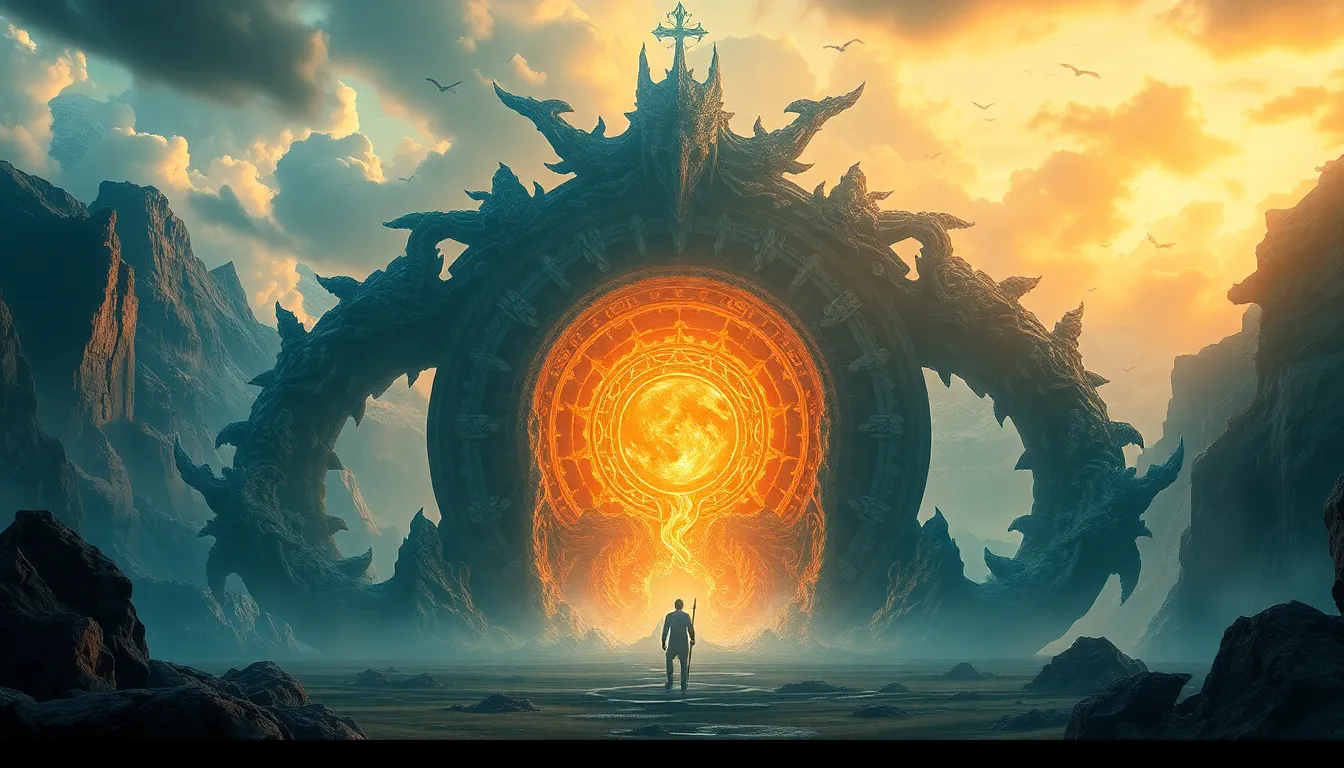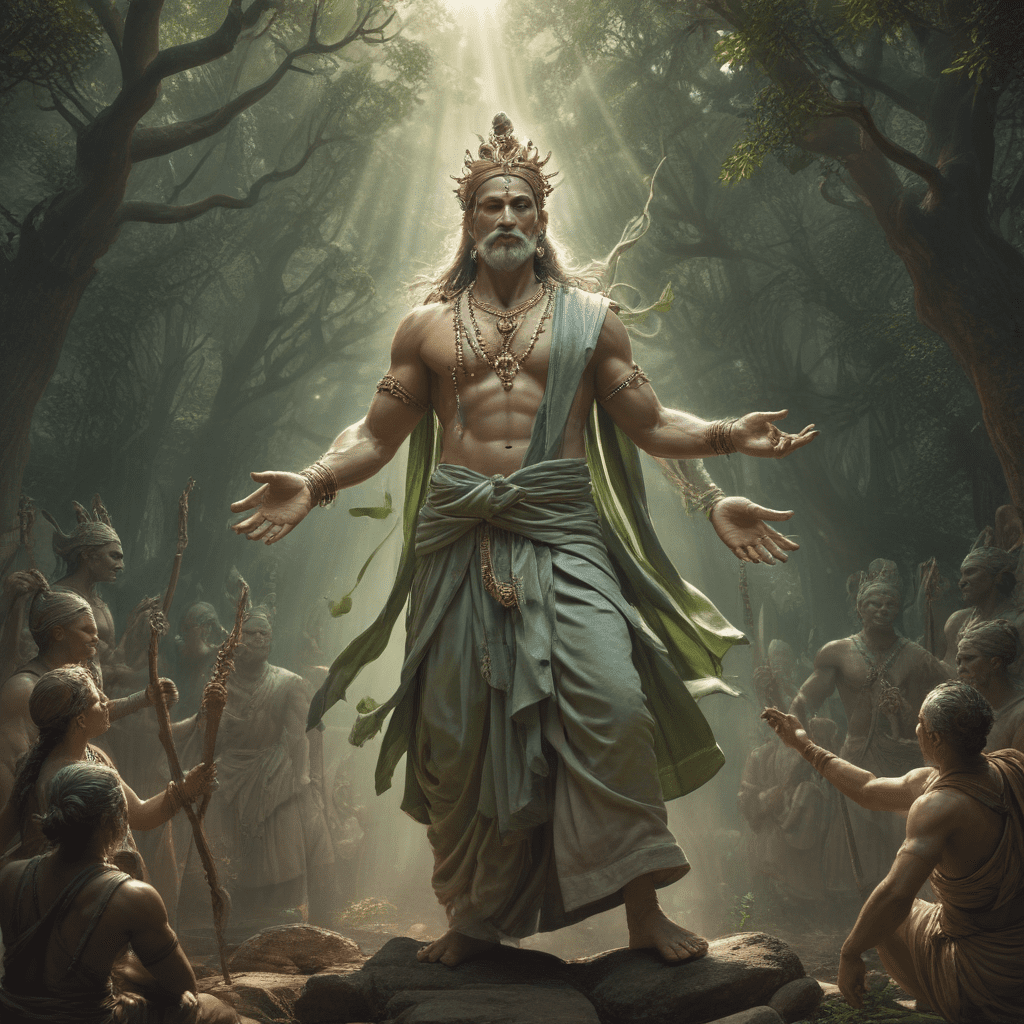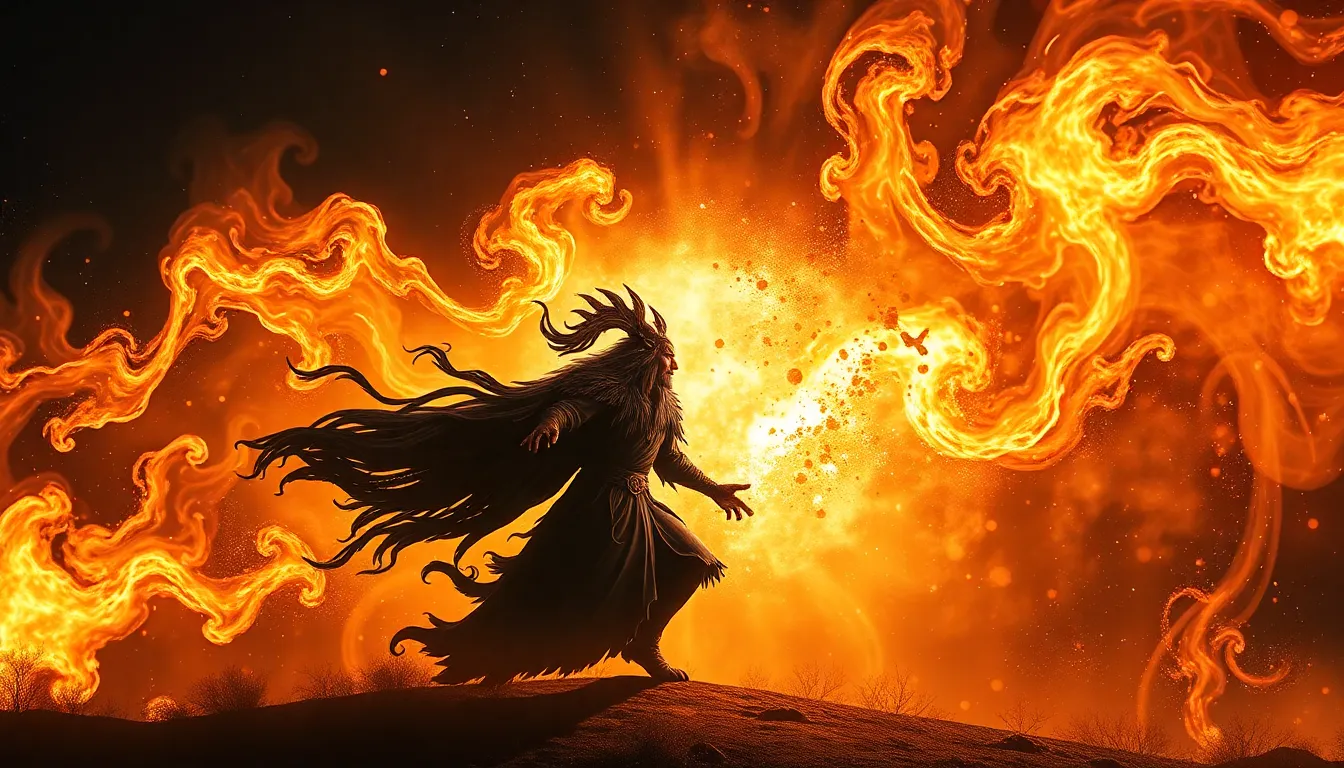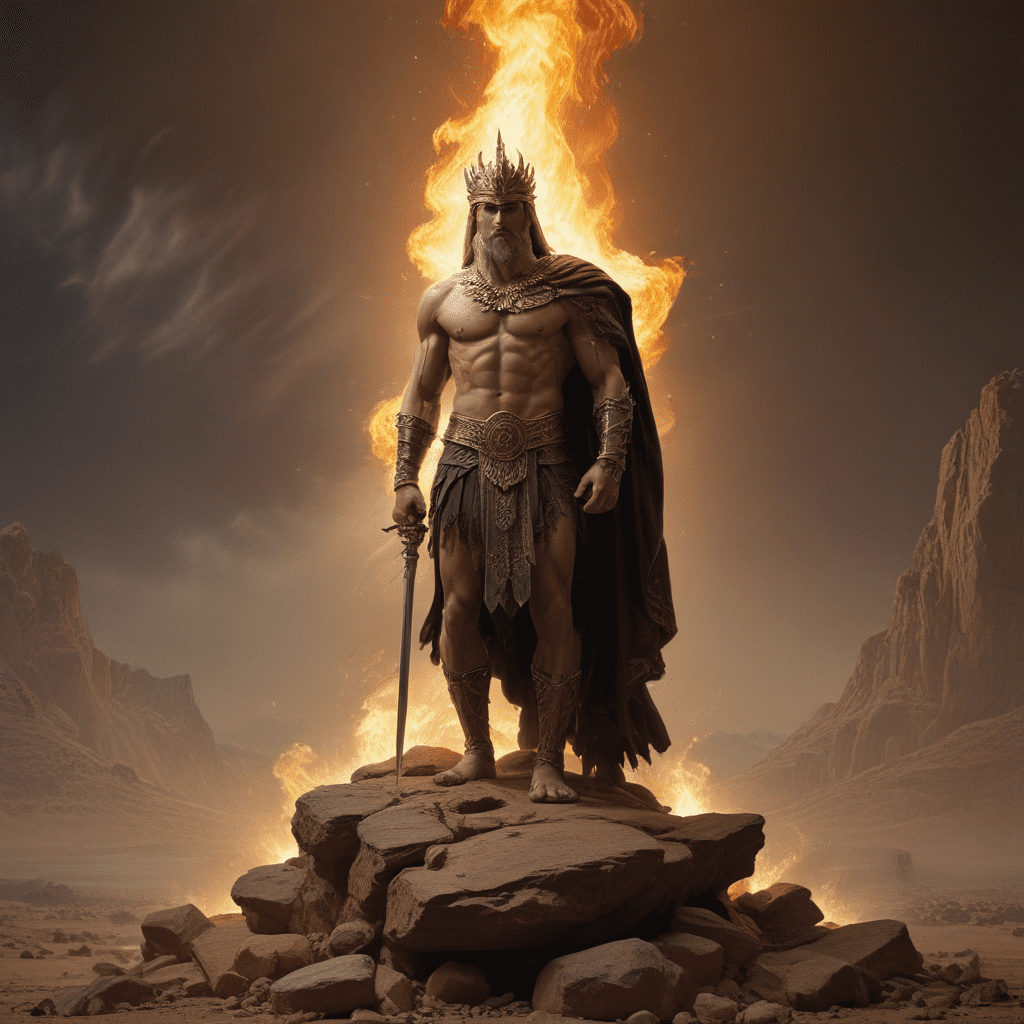Mythical Genesis: The Stories Behind Our Existence
I. Introduction
Mythical Genesis refers to the myriad of stories and narratives that cultures around the world have created to explain the origins of the universe, life, and humanity. These creation myths not only provide insight into the beliefs and values of different societies but also serve as a means for individuals to understand their place in the cosmos.
Creation myths hold a significant place in cultural history, offering a lens through which we can view the development of human thought, morality, and community. They address fundamental questions about existence, purpose, and the relationship between humanity and the divine. In this article, we will explore various creation myths from around the world, examining their themes, structures, and cultural implications.
The following sections will delve into the role of creation myths in human culture, focusing on examples from Ancient Mesopotamia, Egypt, Hinduism, indigenous cultures, Greek mythology, and the Abrahamic religions. We will also consider modern interpretations of these myths in light of contemporary science and society.
II. The Role of Creation Myths in Human Culture
Creation myths are more than mere stories; they are foundational narratives that help societies make sense of their existence. They serve several purposes:
- Understanding Human Existence: Myths provide explanations for the origins of humanity and the universe, addressing existential questions that arise from human consciousness.
- Cultural Identity: These narratives often reflect the values, beliefs, and practices of a culture, helping to forge a collective identity.
- Social Cohesion: By sharing common myths, communities can strengthen their bonds and establish a shared worldview.
When comparing creation narratives across cultures, one can observe both similarities and differences. While some myths emphasize the role of a single creator deity, others feature multiple gods or even a primordial chaos. The psychological and social functions of these myths are profound, as they help societies navigate the complexities of life, morality, and the environment.
III. Ancient Mesopotamian Myths: The Epic of Gilgamesh
The Epic of Gilgamesh, one of the oldest known pieces of literature, serves as a remarkable creation story. It chronicles the adventures of Gilgamesh, a semi-divine king of Uruk, and his quest for immortality. The epic explores themes of creation, destruction, and rebirth, highlighting the transient nature of life.
Key themes include:
- Creation: The narrative begins with the creation of humanity and the establishment of civilization.
- Destruction: The story acknowledges the inevitability of death and the limits of human power.
- Rebirth: Gilgamesh’s journey underscores the potential for personal growth and transformation.
The influence of the Epic of Gilgamesh extends beyond Mesopotamian culture, impacting later mythologies and literary works, including the Hebrew Bible and Greek epics.
IV. Egyptian Creation Myths: From Chaos to Order
In ancient Egypt, creation myths often revolved around the concept of the Ennead, a group of nine deities who played crucial roles in the creation of the world. The Egyptian creation narrative begins with chaos (Nun), from which the first god, Atum, emerged, bringing order and life to the universe.
The significance of the Nile River in Egyptian cosmology cannot be overstated. It symbolizes fertility, sustenance, and the cyclical nature of life. The Nile’s annual flooding was seen as a divine blessing, reinforcing the connection between the natural world and the gods.
This view of chaos and order parallels other ancient civilizations, such as the Babylonian myth of Marduk, who also battled chaos to create the world. Such narratives illustrate the universal human desire to impose order on a seemingly chaotic existence.
V. Hindu Cosmology: Cycles of Creation and Destruction
Hindu cosmology presents a unique perspective on creation, emphasizing the cyclical nature of time. Central to this belief are the deities Brahma (the creator), Vishnu (the preserver), and Shiva (the destroyer). Together, they represent the cosmic cycle of creation, preservation, and destruction.
Key aspects of Hindu creation myths include:
- Cyclic Time: Unlike linear concepts of time, Hinduism views time as cyclical, with endless cycles of creation and destruction.
- Cosmic Balance: The interplay between creation and destruction is necessary for maintaining the balance of the universe.
- Existential Insights: This cyclical understanding of life offers profound implications for how individuals perceive existence and their roles within it.
VI. Indigenous Creation Stories: A Connection to Nature
Indigenous creation stories often reflect a deep connection to nature and the environment. These narratives vary widely among cultures but typically emphasize the role of animals, plants, and the natural world in the creation process.
Some unique perspectives include:
- Interconnectedness: Many indigenous myths highlight the relationship between humans and the natural world, emphasizing that all life is interconnected.
- Spirituality of Nature: Animals and natural elements are often personified and revered, reflecting the sacredness of the environment.
- Colonial Impact: The imposition of colonial narratives has often overshadowed indigenous stories, leading to a loss of cultural identity.
VII. Greek Mythology: Chaos and the Birth of the Gods
In Greek mythology, the creation of the universe begins with Chaos, from which emerged Gaia (Earth), Tartarus (the abyss), and Eros (love). The Theogony, attributed to Hesiod, outlines the genealogy of the gods and their interactions with humanity.
Key themes in Greek creation stories include:
- The Role of Fate: The concept of fate plays a crucial role, with the Moirai (Fates) controlling the destinies of gods and mortals alike.
- Interplay Between Gods and Humans: Greek myths often explore the complex relationships between gods and humans, highlighting themes of hubris, punishment, and divine intervention.
- Philosophical Implications: These narratives raise questions about morality, existence, and the nature of the divine.
VIII. Abrahamic Religions: Creation in Judaism, Christianity, and Islam
The Genesis creation narrative in the Bible describes God creating the world in six days, culminating in the creation of humanity. This story is foundational to Judaism and has significantly influenced Christianity and Islam.
The Quran also offers a perspective on creation, emphasizing God’s omnipotence and the intentionality behind the creation of the universe.
Shared themes among the three religions include:
- Divine Creation: All three traditions affirm the belief in a singular, all-powerful creator.
- Humanity’s Role: The narratives explore the special status of humans and their responsibilities towards creation.
- Morality and Ethics: These myths often serve as a foundation for moral teachings within each faith.
IX. Modern Interpretations of Creation Myths
In contemporary society, the impact of science, particularly the theory of evolution, has challenged traditional creation myths. However, many people still find value in these ancient narratives, often reinterpreting them in light of modern understandings.
Modern interpretations include:
- Scientific Integration: Some individuals reconcile scientific theories with mythological narratives, viewing them as metaphorical rather than literal.
- Cultural Resurgence: There is a growing interest in mythology as a means of exploring cultural identity and heritage.
- Psychological Insights: Myths continue to provide insights into human psychology, offering frameworks for understanding personal and collective experiences.
Ultimately, creation myths remain a vital part of human culture, reflecting our quest for understanding and meaning in an ever-complex world.



